Opposites attract: Why NFL stars are investing in curling
If he succeeds, the story will become legend. It's been more than six years since Jared Allen started curling, and his career is still unfolding with elements of a blockbuster film: a retired NFL player, an outrageous bet, and an Olympic dream.
By now, his curling beginnings are well-documented. After hanging up his cleats, the four-time All-Pro defensive end with the Chiefs and Vikings bet a friend he could make it to the Olympics. As unlikely as it might seem, Allen chose curling as his pathway to glory.
"One of the reasons I fell in love with it is that it's kind of the opposite of what I've done my whole life," Allen says.
That four-letter word - love - is the lesser-known detail in Allen's curling saga. What began as a lark transformed into a deep passion for the sport, and Allen's keen to share the enthusiasm - both within his NFL circles and with the world at large.
Initially, he recruited a cast of former NFL players to form a curling team - quarterback Marc Bulger, linebacker Keith Bulluck, and offensive tackle Michael Roos. The group practiced on makeshift converted hockey ice in Nashville, which led Bulger to found the city's first curling club: Tee Line Curling. Bulger eventually resigned from the team to operate the club. The current list of patrons now read like a who's who of NFL talent. San Francisco tight end George Kittle has become a regular in the offseason and has curled with 49ers wide receiver Trent Taylor and Vikings tight end Robert Tonyan Jr. Fellow Minnesota tight end T.J. Hockenson is also part of the crew.
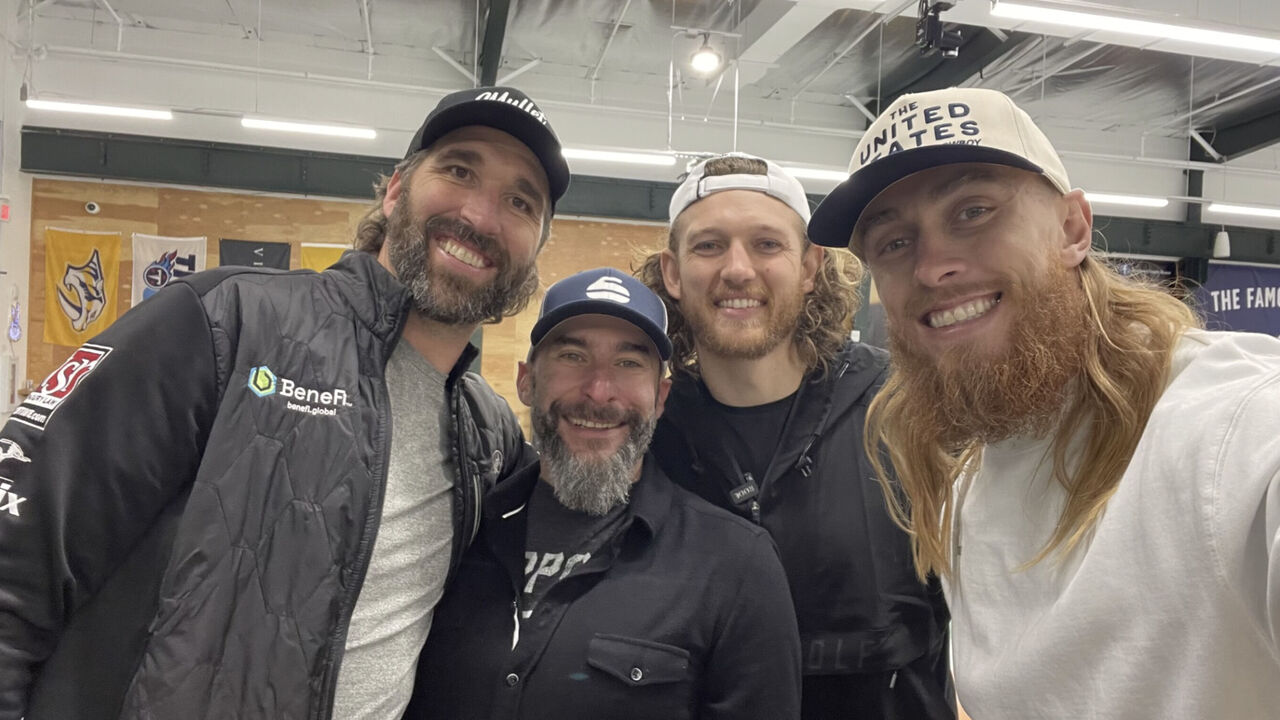
"I love curling because it's a unique, competitive game," Hockenson said in a text message to theScore. "What surprised me was how easy it was to pick up. I'm definitely nowhere near the top of the game, but I can try and hold my own."
Allen, Kittle, and Hockenson don't just love curling, they believe in it. This fall, they joined a group of investors to secure more than $6.5 million in funding for The Curling Group to operate curling's only international event series, the Grand Slam of Curling, which the group purchased from Canadian broadcaster Sportsnet in the spring of 2024.
"There is so much opportunity in the sport of curling that's been missed, for lack of a better word," Allen says. "Let's put some more emotion into the sport."
The growth of curling
Back in 2018 when Allen's Olympic curling dreams were just beginning, Tyler George's were coming to fruition. When George punched his ticket to the PyeongChang Games as vice skip for John Shuster's U.S. rink, it's no exaggeration to say the team was an underdog. At the 2010 Games, Shuster's rink - which comprised a different lineup that didn't include George - finished last. At the 2014 Games, Shuster improved to second last. The team added George for the 2018 campaign, and that was the year it all changed; the group blazed a path to the top of the podium, earning Team USA's first gold medal in the competition and garnering the nation's support along the way.
"We're seeing way more people now with a healthy respect for the sport and how athletic you have to be to compete in it because more people are familiar with it, and a lot of that is due to our success in 2018," George says.
Curling has always enjoyed a committed following in Canada but remained somewhat obscure in the United States until that gold-medal win. That year, Shuster's rink appeared on "The Tonight Show," and was invited to the ESPYs. "People are invested in Olympic athletes and Olympic stories," George says.
The sport has remained a darling for viewers since, even if attempts to grow its popularity have been hit-and-miss. "Each sport kind of has it on themselves to do the best they can to spotlight their athletes," George says. "If you do that, you're going to get more viewers because they're invested in the story and how they got there." But he admits the sport hasn't leveraged athletes' backstories "near as well as we should have." That's something Allen's group is hoping to change.
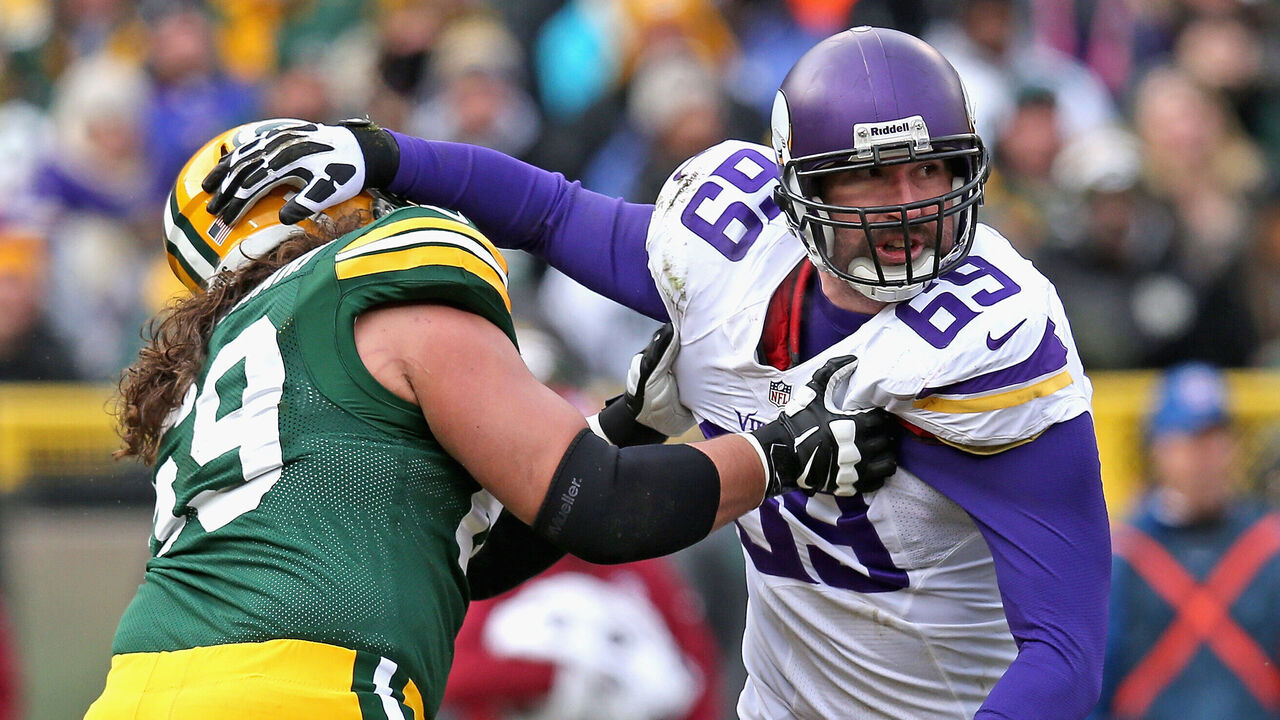
"It's just so mom-and-pop, especially in the United States," Allen says. "I think there's a lot of space for the sport to grow. Sometimes, you've got to think outside the box."
Part of that thinking has been to introduce audiences to the social side of curling - an element of the sport that is prolific in curling circles but rarely revealed in the professional confines of postgame interviews.
The Curling Group has invested a substantial amount in creating new content that prioritizes personality. They hired John Cullen to co-host an in-house podcast, "The Broom Brothers." Cullen became known as a curling content creator after publishing the podcast "Broomgate: A Curling Scandal," which took a both comedic and revelatory deep dive into the change in curling-broom technology that shook the sport in 2015.
"I recognized there was both a total black hole for curling coverage and that I was uniquely positioned to do something about it," Cullen says. "I don't have a background in journalism, but I was a curler at a high level and I'm a stand-up comedian." Cullen believes that blend of personality and curling knowledge is exactly what the sport needs right now.
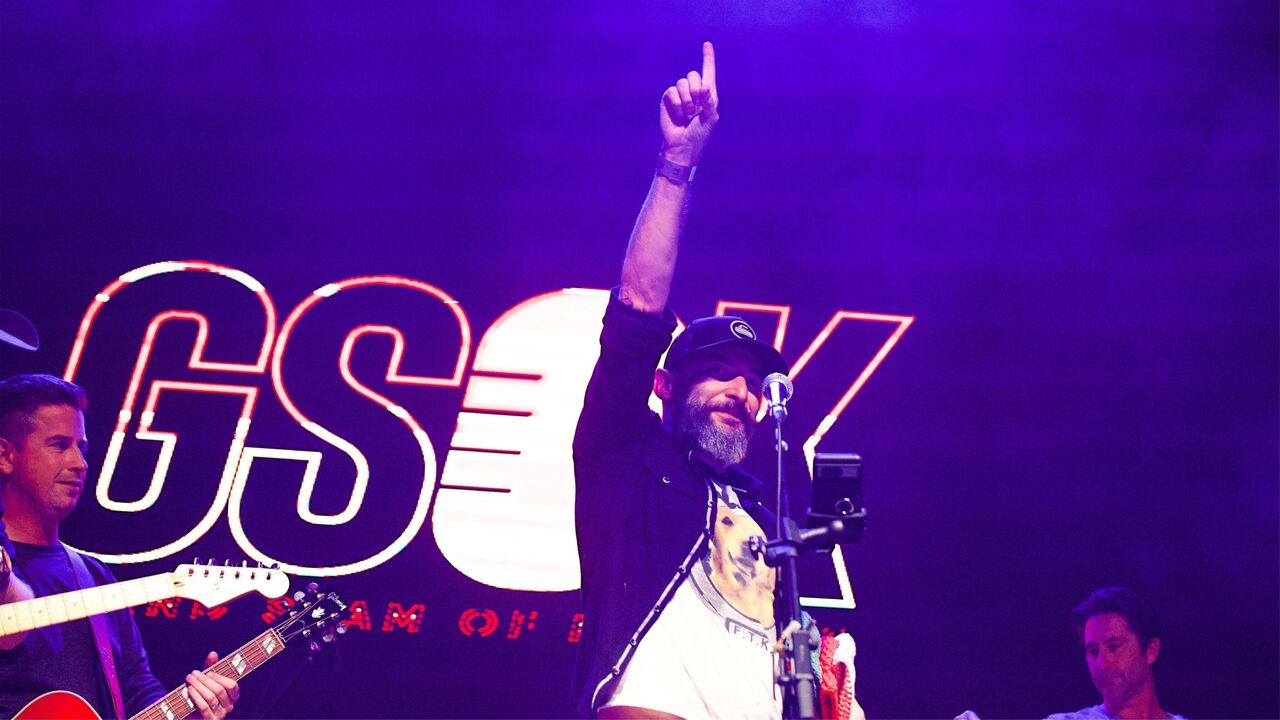
Nic Sulsky, CEO of The Curling Group, thinks the same way. He has specifically leaned into increasing curling content - both by expanding streaming of each draw at the five Grand Slam of Curling (GSOC) events and creating shoulder content, such as following teams as they explore cities on the tour. He's also tapped into an unwritten social rule of the game: Love karaoke.
"Curlers f-----g love karaoke because they travel together all the time," Sulsky says. Sulsky created a parallel event series - the Grand Slam of Karaoke - that kicks off at each tour location in the evening hours after game play has wrapped up for the day. Teams on tour compete for bragging rights and a karaoke belt.
"Let me tell you: It works," he says of karaoke's ability to not only bring curlers together but introduce online audiences to their personalities.
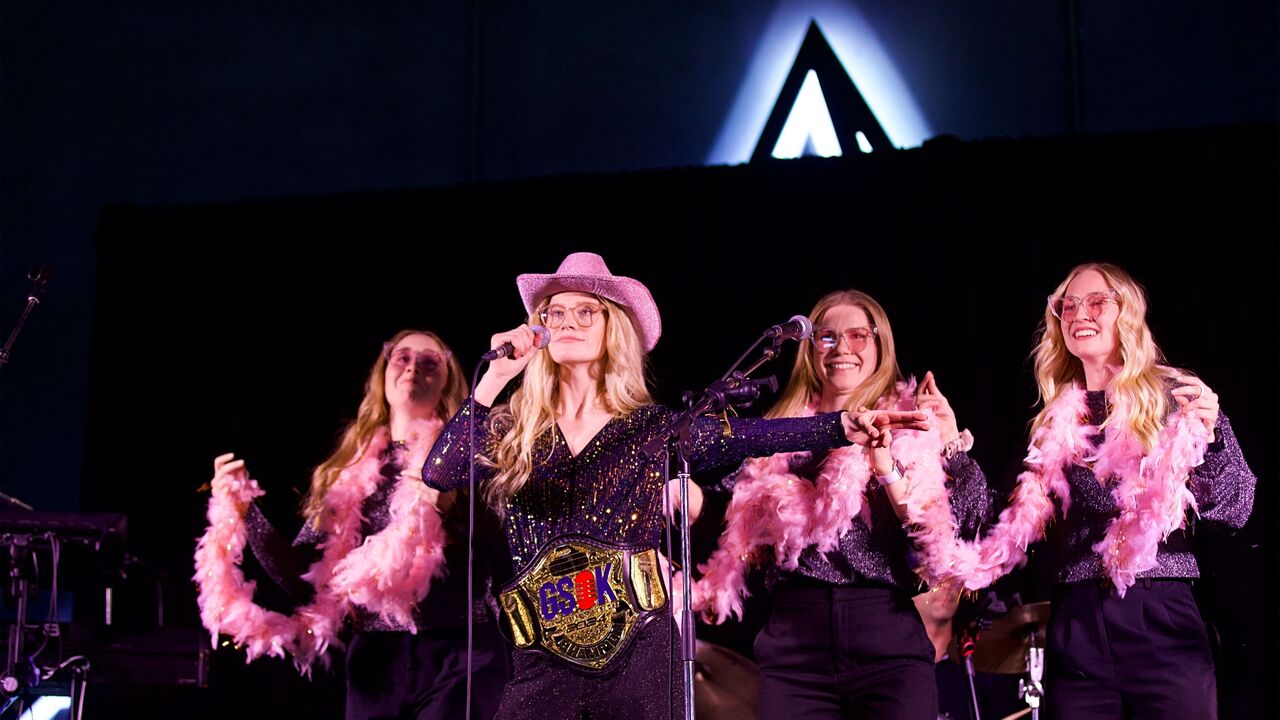
The group is also looking to turn Grand Slam stops into destinations for both experienced and new curling fans. Sulsky referenced golf's Waste Management Phoenix Open as a case study in creating an event atmosphere that extends beyond what happens on the ice.
"The perception of golf totally changed with the Waste Management Phoenix Open. If you bring the lifestyle and the energy of what it's like to be a golf fan or a curling fan into the actual sport and the way that the sport is produced and marketed, you're going to be able to change the audience demographic of that sport and grow the audience," he says.
He's hoping the tour's sold-out draws for the Kioti National in Newfoundland last weekend can prove his point. The province has long been known for its passionate embrace of curling, especially considering Brad Gushue, one of the sport's leading personalities and current skip of Team Canada, hails from St. John's. Crowds at each event were loud and raucous - with cheers and boos throughout. Sulsky wanted to turn the event into a one-of-a-kind, can't-miss sporting event. This year, he offered fans free admission into the VIP bar if they brought an instrument for a GSOC-sponsored kitchen party - a made-in-Newfoundland gathering that involves local music and libations. He hoped it would "change perceptions and stereotypes of what they think curling is."
Close your eyes. Think about what YOU believe Curling is. Then watch this video.
— Nic Sulsky (@nicsulsky) December 4, 2024
A Transformation of Perception. That's what Curling, via @grandslamcurl, is experiencing.
Can you see it? Can you feel it?
If so...Like or RT so the world can see what's happening 🙌#LetsRock pic.twitter.com/cNnwyW8oFV
Curling's traditions have evolved over hundreds of years since early 16th century Scottish monks first took up the pastime. It's not always easy to break with tradition, but Sulsky and his team are hoping they're striking the balance between honoring the old while evolving with today's realities.
"We're rebuilding the brand of curling. We have to reintroduce this sport," he says. "For the grassroots and the hardcore curling fans, we need to be very conscious to not upset the apple cart. But what I hope is that the current hardcore curling fan understands that in order for this sport to grow, in order for curlers to start making the money they deserve to make, there have to be some dynamic changes to the sport. I think the most dynamic changes have to be with the way the sport's marketed, the way the sport's branded, the way the content is produced, the way the content is distributed, and the way that the world sees curlers."
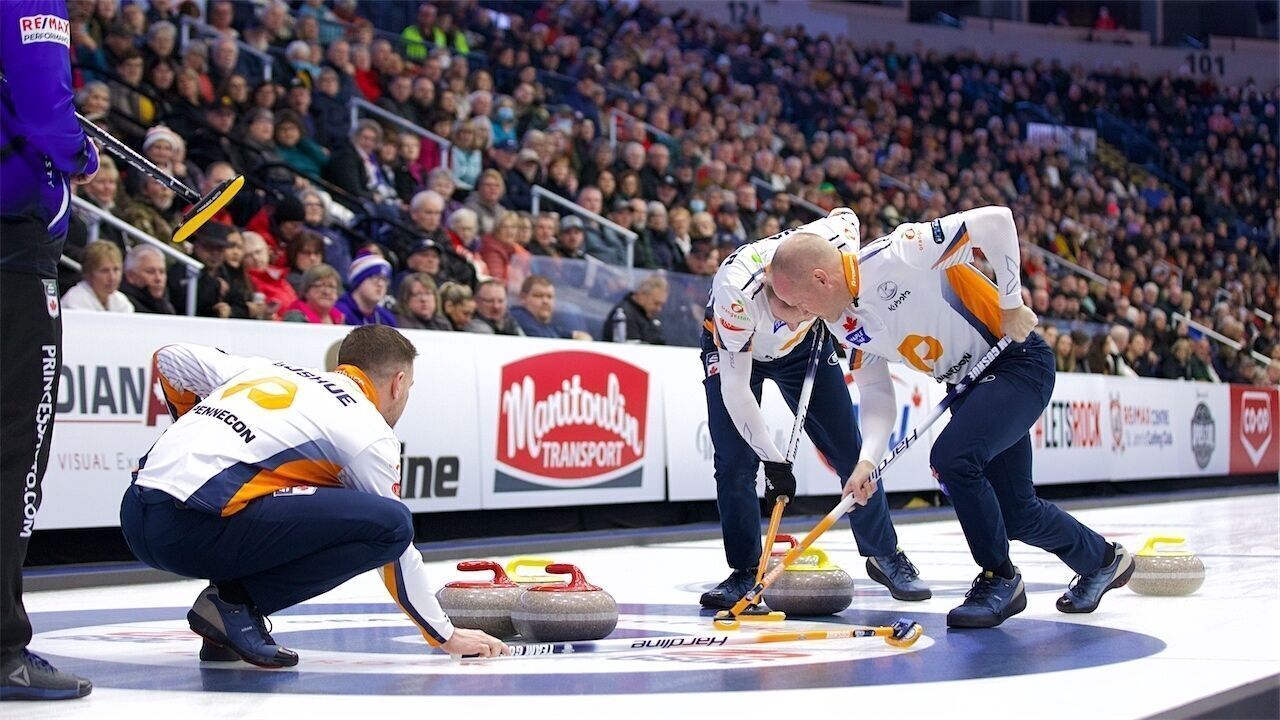
Curlers on the tour understand what Sulsky is trying to do.
"Curling has a lot of tradition in Canada, and I think that tradition is awesome. That's what makes curling special. That's why I started curling. But that tradition is holding us back to some extent from making truly the best decisions," says Brendan Bottcher, who plays second for Gushue's rink.
"It's just a matter of trying to change that narrative in people's heads to understand how hard it is to compete in this sport and not only compete but all the hard work that is put into providing entertainment," says Emma Miskew, who's a member of Rachel Homan's rink, currently ranked first in the world.
Curling's allure
Curling might seem like a niche interest - but for those like Allen who spend time immersed in the sport, it becomes a real obsession.
"There's so many fine details that come into it," Allen says. "When I was playing football, especially my side of the ball, emotion can drive me. Obviously, you have to be highly talented to play football. There's a lot of technique, and work ethic ... but curling involves such a control of your body, and you care more about the control of your emotions. Being able to sweep and then come back and throw a draw - there are so many nuances. You're talking, not even centimeters, but sometimes it's millimeters that make a huge difference."
Even for those who don't take the sport so seriously, there's lots to enjoy about it. "I've always loved being on the ice growing up in Iowa and now living in Minnesota," Hockenson says. "My family and I are all competitors and so to have a sport you can hang out and enjoy while still fueling that competitive spirit ... the sport has grown and there are places throughout the country you can find and throw stones and drink while hanging out with your friends."
An Olympic dream might have been what lured Allen to the sport, but his passion to share his love of the game is what drives him now. "I know what we're trying to accomplish," he says. "There's so much room for this to grow. I think it's so much fun. I have yet to meet one person who's gone out and tried curling and hated it."
Jolene Latimer is a feature writer at theScore.
HEADLINES
- Hughes brothers, Knight, Keller help with 'Heated Rivalry' star's 'SNL' monologue
- Birthday boy Luka drops 26 points in win over Warriors
- Batherson, Cozens each score twice in Sens' win over Maple Leafs
- Caufield scores twice as Canadiens crush Capitals
- Report: Middleton intends to finish season with Mavs